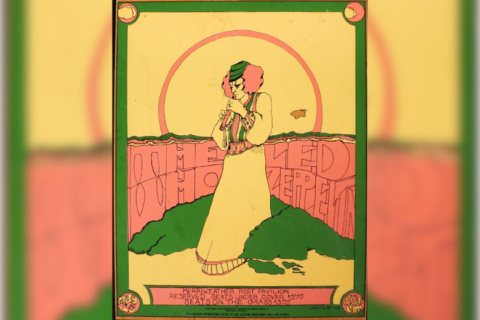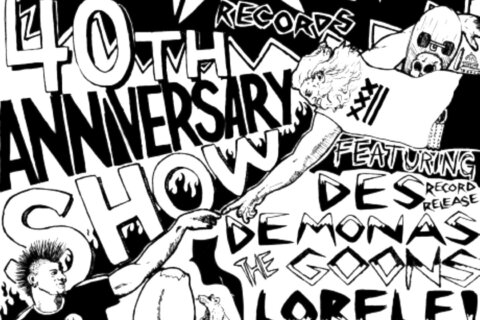(CNN) — Country superstar Jason Aldean is responding to the criticism surrounding his latest single, which has been subject to even more controversy since the recent release of its music video.
Aldean’s single, “Try That in a Small Town,” was released in May. On the surface, it has the makings of a common country hit, with themes of small towns, guns and rugged self-sufficience.
“Try That In A Small Town, for me, refers to the feeling of a community that I had growing up, where we took care of our neighbors, regardless of differences of background or belief. Because they were our neighbors, and that was above any differences,” Aldean wrote in an explanation on Twitter Tuesday afternoon.
However, critics have come up hard against some lyrics that they say evoke, as one commenter put it, a “modern lynching song.”
“Cuss out a cop, spit in his face
Stomp on the flag and light it up
Yeah, ya think you’re tough
Well, try that in a small town
See how far ya make it down the road
Around here, we take care of our own
You cross that line, it won’t take long
For you to find out, I recommend you don’t
Try that in a small town”
“There is no non-racialized way to write a song about lynching,” Jacqui Lewis, a faith leader and podcaster, wrote on Twitter. “When Jason Aldean sings, ‘See how far ya make it down the road,’ it invokes a very particular legacy.”
Other commenters pointed out the lyrics also call to mind “sundown towns,” or communities that exclude or target people of color with threats or violence.
The song also references a common piece of anti-gun legislation rhetoric.
“Got a gun that my granddad gave me
They say one day they’re gonna round up
Well, that sh*t might fly in the city, good luck”
CNN has reached out to Aldean’s representatives for comment.
While singing about guns is certainly not uncommon in country songs of any era, some listeners thought the lyrics were a bit puzzling given Aldean’s tragic history with gun violence. (Aldean is not credited as a writer on the song.)
The entertainer was performing at the Route 91 Music Harvest Festival in Las Vegas in 2017 when a gunman shot repeatedly into the crowd, killing 58 people and injuring hundreds more. The incident is the deadliest mass shooting in American history. Afterward, Aldean spoke out about his emotional experience and expressed an openness for more gun control laws. He acknowledged the mass shooting in his social media statement Tuesday, noting, “NO ONE, including me, wants to continue to see senseless headlines or families ripped apart.”
The controversy over “Try That in a Small Town” reached a new level with the recent music video release for the song. Some viewers noticed scenes in the video were shot in front of what appears to be the Maury County Courthouse in Columbia, Tennessee. The courthouse has been the site of several incidents of racial violence, including the 1927 lynching of a Black man named Henry Choate. It also served as a backdrop for the Columbia Race Riot in 1946. (Aldean himself was born and raised in Macon, a mid-sized city in central Georgia.)
Some commenters called the location a “dog whistle.”
“Clearly you know NOTHING about the history of that building and lynching,” another replied.
Several prominent voices have added their thoughts to the controversy, including gun control activist Shannon Watts and TV legend LeVar Burton.
Fans of Aldean defended the choice of location for the music video, saying it was likely a coincidence. Others outright applauded the new song.
Conservative influencer Greg Price called the music video “epic” and said it “rips into the left-wing riots, soft on crime governance in cities, gun control, and other leftist degradation.”
Aldean responded to the criticism in his latest tweet, denying claims of prejudice and what he called “pro lynching” themes.
“These references are not only meritless, but dangerous,” he wrote on Twitter. “There is not a single lyric in the song that references race or points to it- and there isn’t a single video clip that isn’t real news footage -and while I can try and respect others to have their own interpretation of a song with music- this one goes too far.”
He continued, saying the song is supposed to be a call for unity.
“My political views have never been something I’ve hidden from, and I know that a lot of us in this Country don’t agree on how we get back to a sense of normalcy where we go at least a day without a headline that keeps us up at night. But the desire for it to- that’s what this song is about.”
Aldean has been a fixture in the country music pantheon for years, and is among contemporary country radio’s most-played voices. This controversy comes at a time when country music itself is evolving, with more diverse acts hitting the mainstream and big stars speaking out in support of racial justice, LGBTQ rights and other social issues.
The-CNN-Wire
™ & © 2023 Cable News Network, Inc., a Warner Bros. Discovery Company. All rights reserved.







